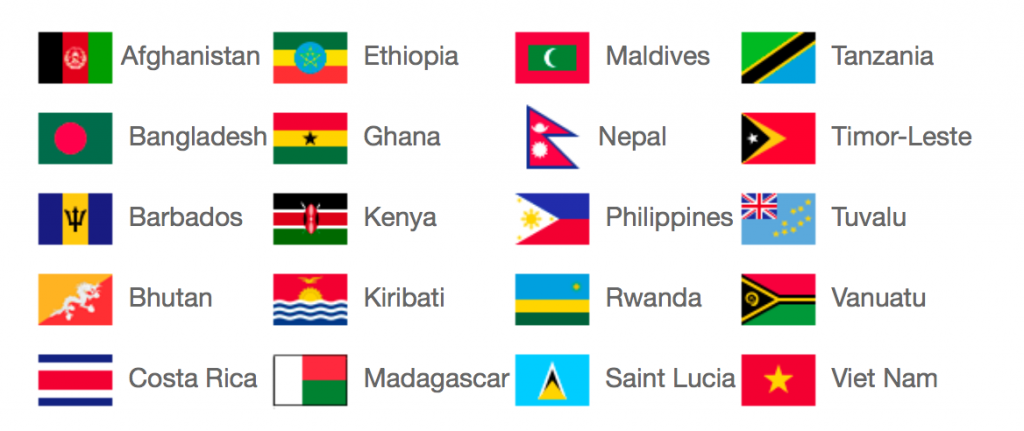p By Morgan Heckerd
The Declaration of the Climate Vulnerable Forum to be signed on Monday (tomorrow November 30, 2015) has directed our attention to the long-term goal section of the ADP text. This declaration includes ideas such as historic responsibility, common but differentiated responsibilities, and respective capabilities. I’d really like to put a strong emphasis on the importance of using these principles when speaking about a climate justice approach. These ideas are the foundation for just negotiations and must play a key role in Paris this year. Their declaration describes essential steps that the agreement must include to respect these core principles. These steps I’m talking about are: mitigation and adaptation finance, technology transfer, and capacity building; the Climate Vulnerable Forum is demanding that these steps are taken in a transparent, consensual, and accountable manner that prioritizes the needs of the most vulnerable countries.
Everything I’ve mentioned so far is great, and I’m very supportive of their stance, but I’m afraid it is still not ambitious enough.
Although they have asked the developed countries to peak their emissions in 2020, they are only asking them to reach 70-90% reduction by 2050 and 100% reduction between 2060-2080, and honestly this is not enough. To maintain a global temperature below 2ºC of pre-industrial levels we need to have zero emissions by 2050– not net-zero; not decarbonization; but true zero emissions. The issue is there is only so much space in the atmosphere to pollute. Since 25% of the world’s population has historically used 75% of this space, it is only right to allocate the remaining space to the 75% of the population who have historically only contributed 25% of the our emissions. At the current level of emissions coming from developed countries, if all parties had the same deadline for zero emissions the developed countries would hog the remaining space in the atmosphere. This is completely disrespecting the developing countries right to develop without jeopardizing the lives and futures of their people. We, as civil society, need to demand differentiation with parties’ long-term goals. Developed countries need to have zero emissions by 2030 or 2040 at the latest, and developing countries need to meet this goal by 2050. And this is not easy for the majority of the developing countries, I recognize that, which is why climate finance, tech-transfer, and capacity building are so crucial because if we don’t meet this goal, we will be living in a world much warmer than the 2ºC target.
And now with so many eyes on the long-term goal section of the ADP many people are asking, “is zero by 2050 realistic? Can we actually be free of fossil fuels in the near future?” but these are no longer the questions because quite frankly asking such questions is submission to the possibility of a 3 or 4-degree world which is not a habitable world.
Members of CVF:
For more information on CVF visit their website
